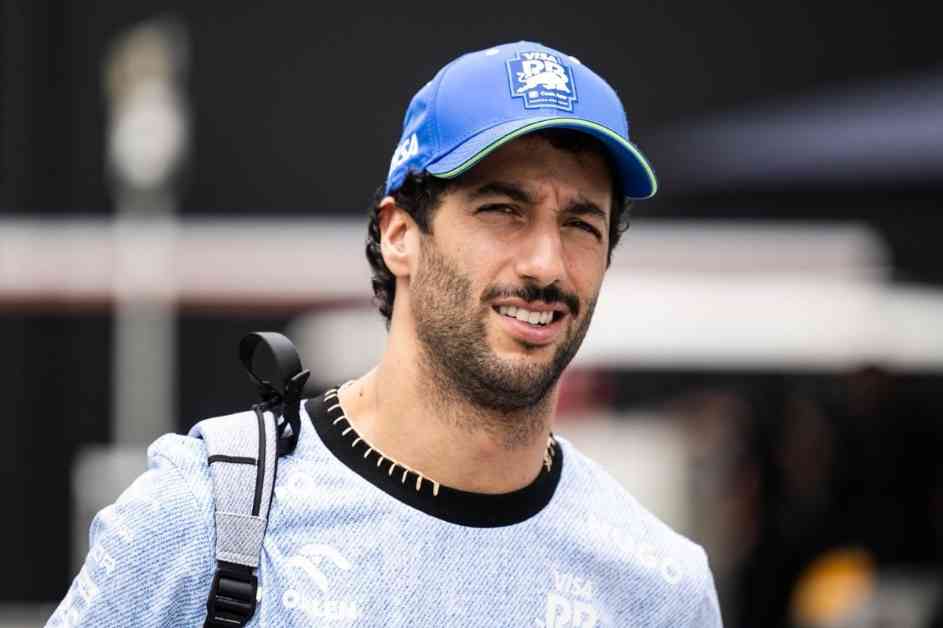Marko Suggests Ricciardo Lost Competitive Edge Post Red Bull Exit
Helmut Marko, the motorsport advisor for Red Bull Racing, has recently shared his thoughts on Daniel Ricciardo’s career trajectory since leaving the team. Marko believes that Ricciardo lost his “killer instinct” during his time away from Red Bull, ultimately impacting his performance in other teams.
The news of Ricciardo’s departure from Red Bull came as Liam Lawson, the reserve driver, was announced as his replacement for the remainder of the 2024 season. This decision effectively marks the end of Ricciardo’s 14-year career in Formula 1, leaving the 35-year-old Australian to contemplate his future in racing.
Ricciardo’s journey in Formula 1 began as a Red Bull junior driver, where he quickly rose through the ranks to compete for the main team from 2014 to 2018. During his time with Red Bull, Ricciardo established himself as one of the standout performers in the sport, securing seven wins alongside his teammates Sebastian Vettel and later Max Verstappen.
In 2019, Ricciardo made the move to Renault at the urging of team boss Cyril Abiteboul but struggled to replicate his previous successes in less competitive machinery. After two challenging seasons at Renault, Ricciardo joined McLaren, where he claimed his eighth career victory at the 2021 Italian Grand Prix. However, his time at McLaren was marked by frustrations as he tried to adapt to the team’s performance limitations before being released from his contract one year early in 2022.
According to Marko, Ricciardo’s decision to leave Red Bull was a pivotal moment in his career, leading to a decline in his performance. Marko expressed concerns about Ricciardo’s lack of “killer instinct” in recent years, attributing it to his departure from Red Bull and subsequent struggles at Renault and McLaren. Despite Ricciardo’s win at Monza, Marko believes that the Australian never fully recovered his competitive edge after leaving Red Bull.
Marko also highlighted Ricciardo’s reservations about Red Bull’s switch to Honda power units as a factor in his decision to leave the team. While financial considerations played a role, Marko suggested that Ricciardo may have been swayed by Renault’s promises and Abiteboul’s persuasion. Ultimately, Marko believes that Ricciardo’s departure from Red Bull was influenced by a combination of factors, including his relationship with Verstappen and doubts about the team’s competitiveness.
Reflecting on Ricciardo’s time at Red Bull, Marko noted the driver’s success in outperforming Vettel and Kvyat during his tenure with the team. However, he acknowledged that Ricciardo faced tougher competition with the emergence of Verstappen, leading to his decision to pursue opportunities elsewhere.
Despite the mixed reactions to Ricciardo’s exit from Red Bull and the subsequent announcement of his replacement, Marko emphasized that Ricciardo was informed of the decision and delivered a strong performance with the fastest lap. While acknowledging Ricciardo’s potential, Marko reiterated that the Australian struggled to consistently outperform his teammate, Tsunoda, leading to the conclusion that their partnership was not as successful as anticipated.
In conclusion, Marko’s insights shed light on the complexities of Ricciardo’s career trajectory post-Red Bull and the challenges he faced in maintaining his competitive edge. While Ricciardo’s departure from Red Bull marked a turning point in his career, his journey in Formula 1 has been marked by highs and lows that have ultimately shaped his legacy in the sport.








